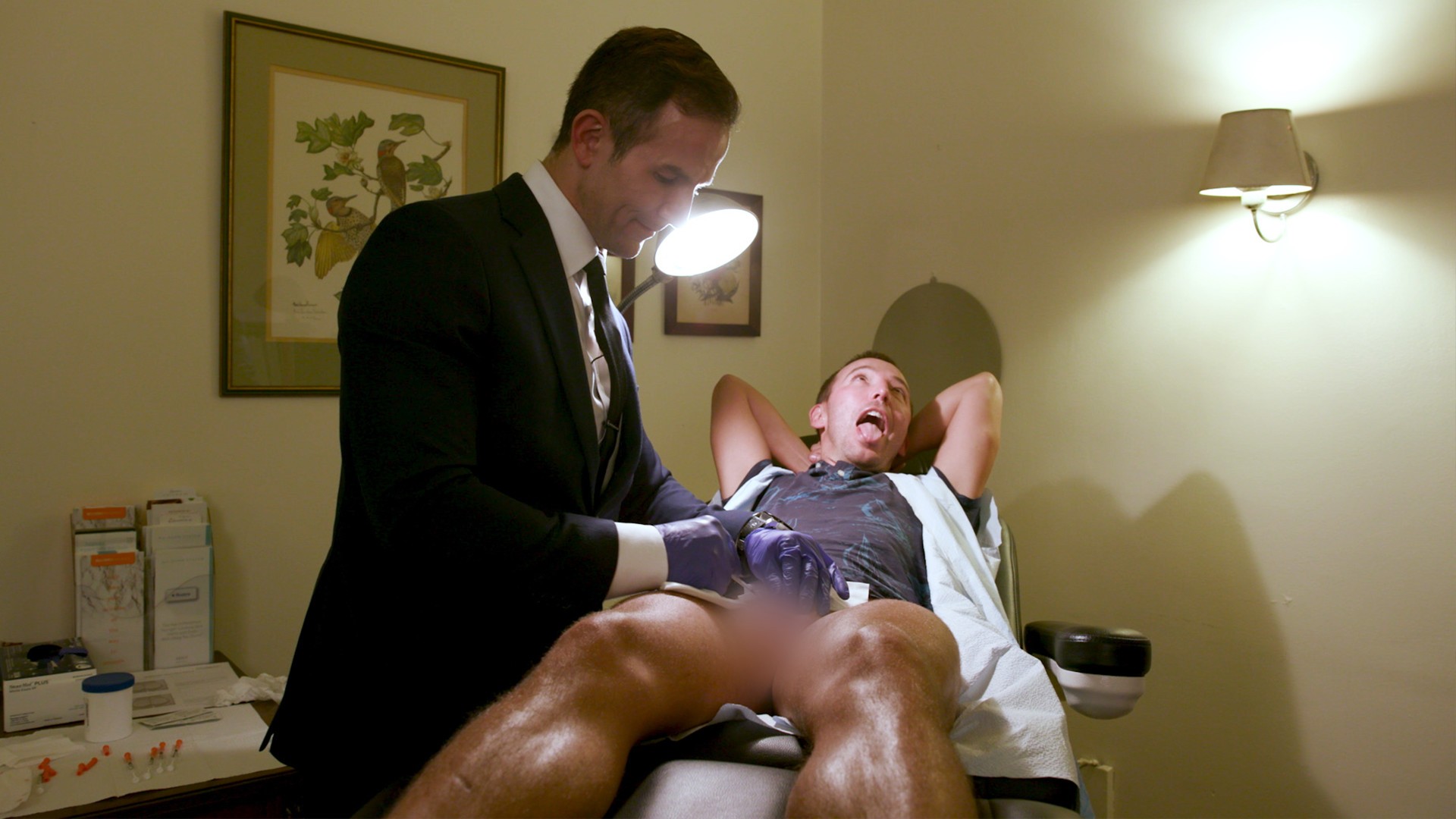Trevor Williams/Getty Images; SciePro/Getty Images
How do you feel after you have an orgasm? If you’re like most people, you probably feel pretty damn good. But what if that weren’t the case? Imagine for a second what it would be like if, instead of feeling great, you started feeling sick. Let’s also imagine that these sick feelings were to stick around for up to a full week afterwards. Sex suddenly doesn’t sound like so much fun anymore, does it? Sadly, this is exactly what happens to some men almost every time they have an orgasm, a condition known as post-orgasmic illness syndrome (or POIS).POIS is a rare phenomenon that was first described in the medical literature 15 years ago. Since then, about 50 cases have been documented. A team of scientists recently summarized what we’ve learned about POIS to date in a paper published in the journal Sexual Medicine Reviews.For starters, the symptoms of POIS vary a lot from one guy to the next. Researchers have identified seven different clusters of symptoms, which can be isolated to the eyes (itching or burning), the nose (congestion or sneezing), the throat (dryness or soreness), the head (headaches or fogginess), or muscles throughout the body (tension, pain, or weakness). Other times, men experience more general flu-like symptoms. There are also some guys who experience symptoms from multiple clusters.Regardless of the type of symptoms experienced, they tend to set in quickly and consistently after orgasm, anywhere from a few seconds to a few hours later. Symptoms vary in intensity and duration and last between 2 to 7 days, at which point they spontaneously resolve.Looking at all of the POIS cases documented thus far, it seems that about half of the men say this is something they started experiencing after their very first orgasm. However, the other half seemed to develop it later during adulthood.As you might imagine, feeling this way after each orgasm is rather distressing, and it takes a toll on guys’ mental health and their relationships. I should say that these men still enjoy sex—the problem is that they fear the onset of symptoms, so they tend to avoid it, with some seeking to abstain from sex and masturbation as much as possible. This obviously creates issues when it comes to starting and maintaining healthy sexual and romantic relationships.Naturally, you’re probably wondering what the cause is and, unfortunately, we can’t say for sure. It’s also possible that, given the wide variety in symptoms, perhaps there are different causes for different men. That said, the preferred theory is that it’s an allergic or autoimmune reaction. Some studies have provided support for this idea and point to a compound in guys’ semen as the cause (though, to be clear, it’s not sperm itself that seems to be triggering the body’s reaction—the most likely candidate is a chemical produced by the prostate).
More from Tonic:
Interestingly, other scientists have proposed a different explanation, but it’s in need of testing. They suggest that perhaps what’s going on here is akin to opioid withdrawal. When we reach orgasm, a bunch of brain chemicals are released (including opioids), which give us those feelings of ecstasy. It could be that men with POIS have some type of opioid receptor issue—perhaps their brains are consuming more than normal—that leads them to experience symptoms similar to opioid withdrawal when orgasm is over.So are there any current treatment options for men with POIS? Some guys turn to self-help strategies. For example, some manage by scheduling sex only at times when they know that symptoms won’t interfere with work or other important things going on in their lives. Obviously, this strategy is less than ideal because it means sex can never truly be spontaneous.Fortunately, some studies have found that medications can help, including antihistamines (that is, allergy meds) and nonsteroidal anti-inflammatory drugs. Other research has documented success with immunotherapy. This involves receiving small injections of one’s own semen under the skin on a regular basis (every few weeks to start, and then monthly for a couple of years after that). This approach might not be everyone’s cup of tea, but it’s the same one used in the treatment of pollen, mold, and pet allergies. Regularly exposing the body to small doses of an allergen in this way ultimately reduces your sensitivity to it.That said, all of the treatment data are very limited, and none of them seem to be equally effective for everyone. Again, this points to the possibility that perhaps not all cases of POIS have the same cause. If so, this means that different treatments would be necessary for different people.It’s worth noting that since the first case of POIS was recorded in 2002, there has been an uptick in the number of men complaining of POIS in online forums. This suggests that we don’t yet have a good sense of the true prevalence of it and that it’s probably under-diagnosed. It’s also possible that most guys with POIS are being incorrectly diagnosed with other issues due to lack of knowledge on the subject.Clearly, we still have much to learn about POIS, and it’s important that future research goes beyond looking at exclusively at men, given that a study published last year reported at least one case of POIS affecting a woman. (There are also some women who are allergic to their partners' semen, which is a whole other issue.) For now, though, the good news is that POIS appears to be treatable, and it doesn’t necessarily mean that one has to forego an active sex life.Justin Lehmiller is the director of the social psychology program at Ball State University, a faculty affiliate of The Kinsey Institute, and author of the blog Sex and Psychology. Follow him on Twitter @JustinLehmiller .Read This Next: Can Swallowing Semen Cause Stomach Problems?
Advertisement
Advertisement
More from Tonic:

Interestingly, other scientists have proposed a different explanation, but it’s in need of testing. They suggest that perhaps what’s going on here is akin to opioid withdrawal. When we reach orgasm, a bunch of brain chemicals are released (including opioids), which give us those feelings of ecstasy. It could be that men with POIS have some type of opioid receptor issue—perhaps their brains are consuming more than normal—that leads them to experience symptoms similar to opioid withdrawal when orgasm is over.So are there any current treatment options for men with POIS? Some guys turn to self-help strategies. For example, some manage by scheduling sex only at times when they know that symptoms won’t interfere with work or other important things going on in their lives. Obviously, this strategy is less than ideal because it means sex can never truly be spontaneous.
Advertisement
